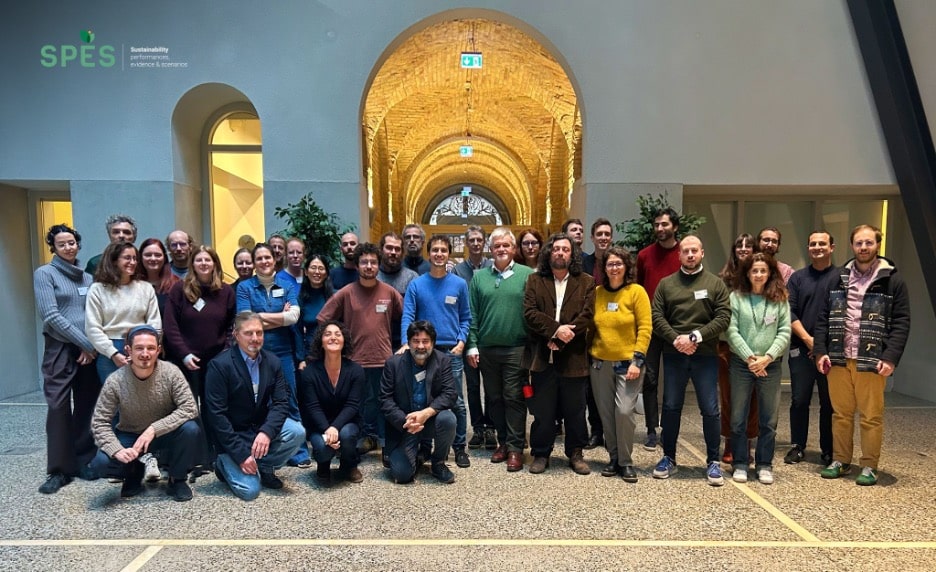Workshop on the role of carbon markets in reaching carbon neutrality

As the number of carbon markets grows, the long-term contribution of market-based instruments to reach carbon neutrality by 2050 should be further assessed. In general, the size, scope, parameters, and prices of Emissions Trading Systems (ETSs) vary and evolve depending on the social, economic, political, and legal context of each jurisdiction. All these aspects of regulated carbon markets are to be considered by policymakers. To tackle challenges, regulators may find insights from new scientific evidence.
This workshop aims to collect insights from policy-relevant research on recent trends in carbon markets, with a particular focus on the EU ETS. It will address topics such as future allowance prices, scope expansion of ETSs and market oversight, among others. Furthermore, it will focus on the methodologies used to assess ETSs (i.e., ex-post and ex-ante model-based assessments) and their results.
The 3-day event will comprise a keynote lecture, paper presentations, a policy roundtable and a guest lecture.
It is organised by FSR Climate under the framework of the LIFE COASE project, which is co-funded by the European Union’s Life Programme. The workshop combines the ex-post and the ex-ante model based assessment of ETSs and will take place during the Joint Session of Workshops of the Robert Schuman Centre in the context of the 30 anniversary of the Centre.
Participation in the event is via invitation only. Find out more about the programme of the Joint Session of Workshops here.
Programme
18 June
10:00-10:45 Introduction, Tour de Table, Ice Breaker
11:15-12:05 Keynote speech: The merits and shortcomings of the EU carbon markets
- Sonja Peterson | Kiel Institute for the World Economy
12:15-13:00 Session 1: Chinese National ETS Model
China’s national ETS price outlook: long-term forecast and policy scenarios [Introduction]
- Boyang Jin | London Stock Exchange Group
14:00-15:30 Session 2: EU ETS Models
Economic interaction between climate policy instruments [Abstract]
- Jakub Boratyński | KOBiZE
Sequencing CDR into the EU ETS [Abstract]
- Sebastian Osorio | Potsdam-Institute for Climate Impact Research
16:00-17:10 ETS Model Comparison
- Sebastian Osorio
19 June
10:00-11:30 Session 3: Carbon leakage
Carbon border adjustments: an examination of the direct and indirect effects of the European Carbon Border Adjustment Mechanism (CBAM)
- Antton Haramboure |Organization for Economic Cooperation and Development
Carbon prices, emissions and international trade in sectors at risk of carbon leakage: evidence from 140 countries [Abstract]
- Jonas Teusch | OECD
12:00-13:30 Session 4: Carbon pricing and firm behaviour
The effects of carbon pricing along the production network [Abstract]
- Thomas Stoerk | National Bank of Belgium & LSE
Realist analysis of UK ETS trading and abatement behaviour [Introduction]
- Mary Anderson | CAG Consultants
14:30-15:30 Policy panel: ETS Endgame – Including new sectors and removals ETSs
- Edoardo Croci | Bocconi University
- Sebastian Osorio | Potsdam-Institute for Climate Impact Research
- Elena Marro | European University Institute
16:00-17:30 Session 5: Beyond the EU ETS: Offsets & China ETS Policy Overlap
Willingness-to-claim voluntary carbon offsets: market evidence of revealed-preferences [Abstract]
- Tara L’Horty | Université de Lorraine
Interactions between emissions trading systems and other policies: insights from theory and an application to China [Abstract]
- Carolyn Fischer | World Bank
20 June
09:15-11:30 Session 6: Decarbonising industry and agriculture
Steel in the EU CBAM: will scrap-resource shuffling delay the sector’s global decarbonization? [Abstract]
- Maxime Gérardin | France Stratégie
Market design options for integrating negative emissions into the ETS [Introduction]
- Carlotta Von Bebenburg | Oxera
Options to expand emissions trading to emissions from agriculture in Europe [Abstract]
- Benjamin Görlach | Ecologic Institute
12:00-13:30 Session 7: Legislation for carbon pricing
The integration of negative emissions in the EU legislation [Introduction]
- Elena Bonfiglio | European Roundtable on Climate Change and Sustainable Transition
Enhancing climate policies through the implementation of regulated carbon markets in Brazil: reflecting on strategies for closing the policy-science loop [Introduction]
- Adriana I. B. S. L. Di Pasquale | University of Pisa
14:30-15:30 Guest lecture: Stopping climate change
Paul Ekins | UCL
16:00-17:30 General discussion & conclusions
17.30 Close
Don’t miss any update on our events
Sign up for free and access the latest events from our community.

















